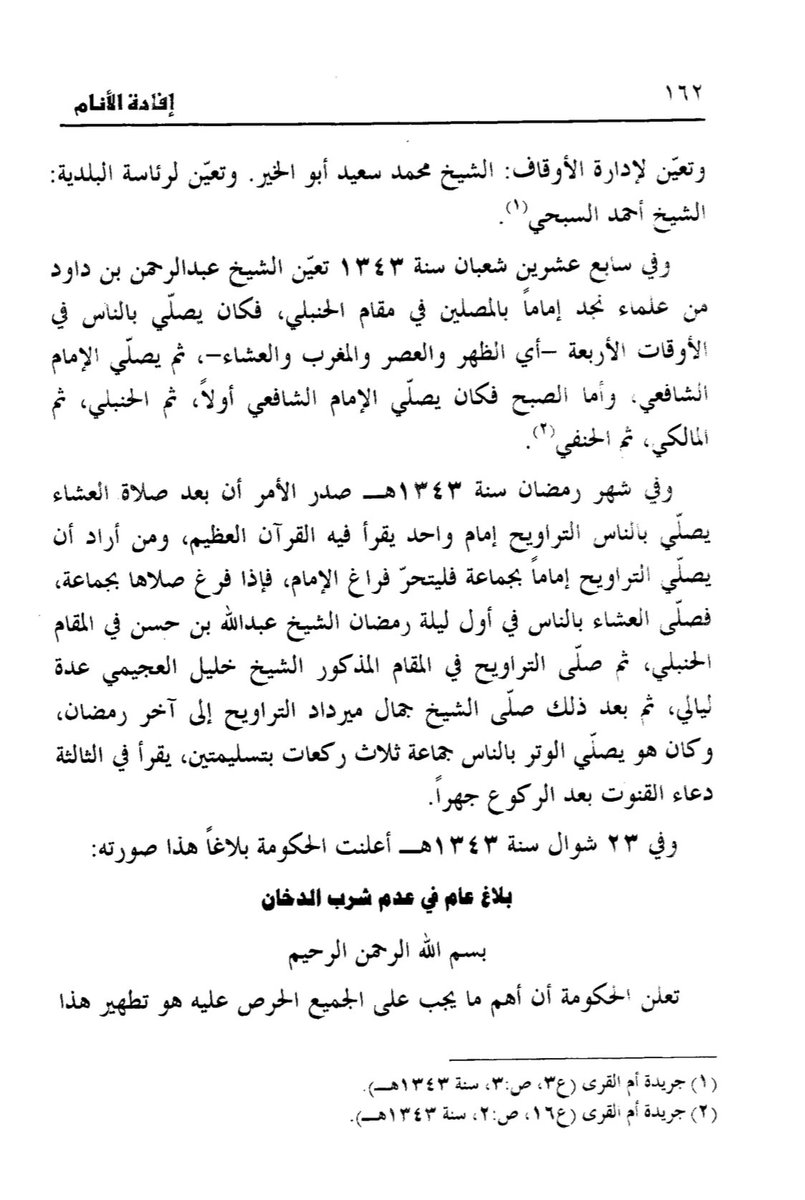
رعد
@RaadTheShepherd
{إِنَّ اللَّهَ وَمَلَائِكَتَهُ يُصَلُّونَ عَلَى النَّبِيِّ ۚ يَا أَيُّهَا الَّذِينَ آمَنُوا صَلُّوا عَلَيْهِ وَسَلِّمُوا تَسْلِيمًا}
This verse comes to my mind whenever I see a Muslim hoping to convince a stubborn Ashʿari.
This verse summarizes the Sunni/Salafi approach Ibn Jurayj (d. 150) commented: "[meaning] He [Allah ﷻ] is saying to Muhammad ﷺ: 'If I tell you about something then know that it's just as I told you, I'm the all-knowledgeable'"
Shaykh al-Islam Ibn Taymiyyah said: “This is the way of the people of ignorance and innovation: they question authentic, well-established reports while using weak reports as evidence”
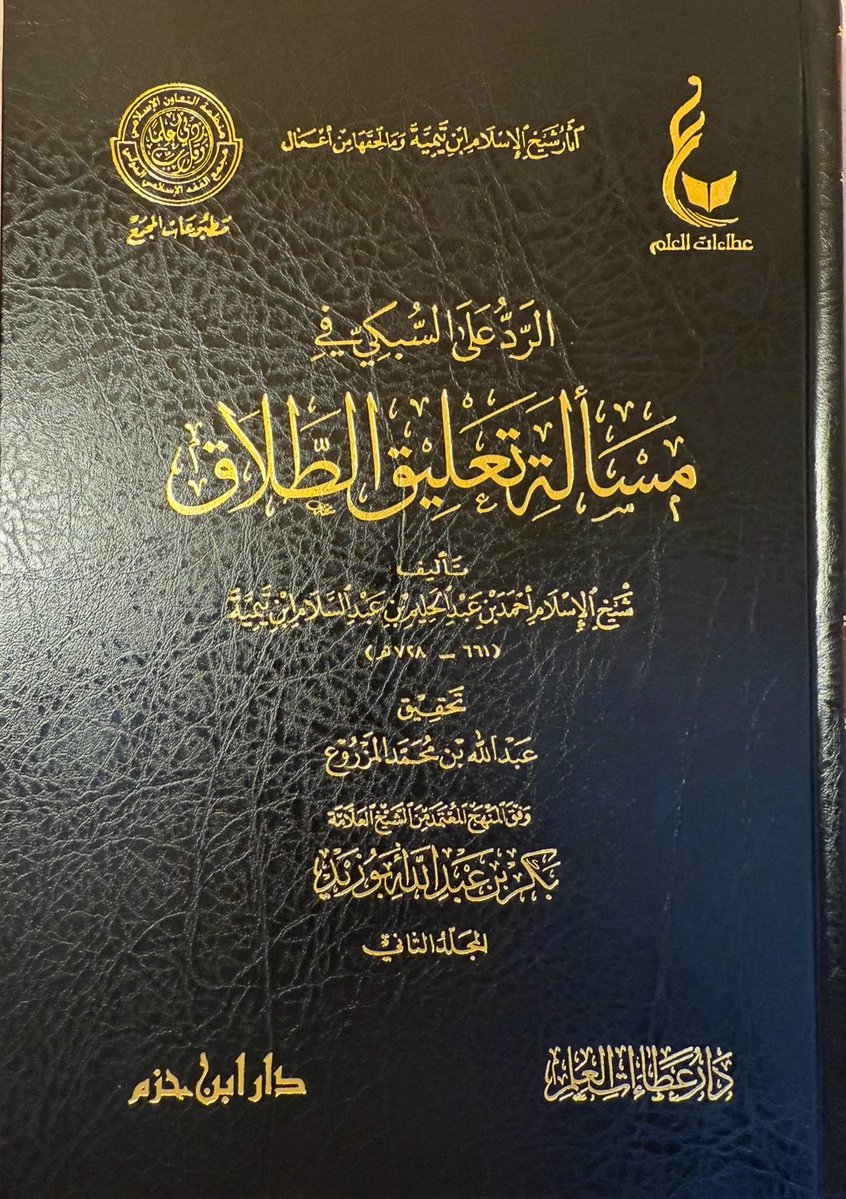
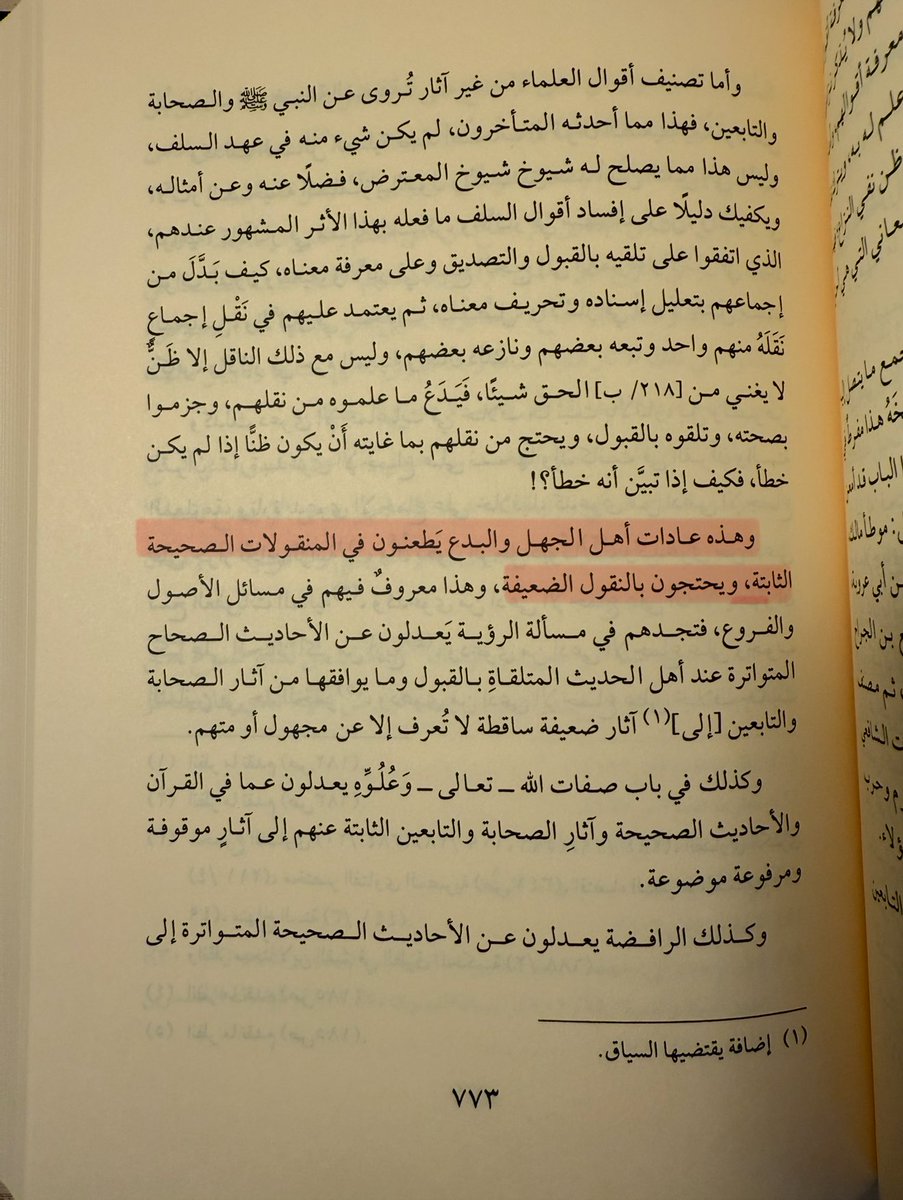
The student of Shaykh al-Islam ibn Taymiyyah, Najm ad-Din at-Tufi, writes on the issue of the Ru'yah : “Know that the people have differed regarding whether we will see Allah in the Hereafter or not, with the consensus that He is not seen in this world...
Shaykh al-Tarifi said: “For your body to be imprisoned while your heart remains free is better than a sin that imprisons your heart and sets your body free. Allah said about Yusuf peace be upon him: {My Lord! I would prefer prison to what these women are calling me to do}”

Ibn al-Qayyim said: “No one has ever opposed the revelation with their intellect except that God corrupted their intellect, to the point where they end up saying things that make rational people laugh at them.”
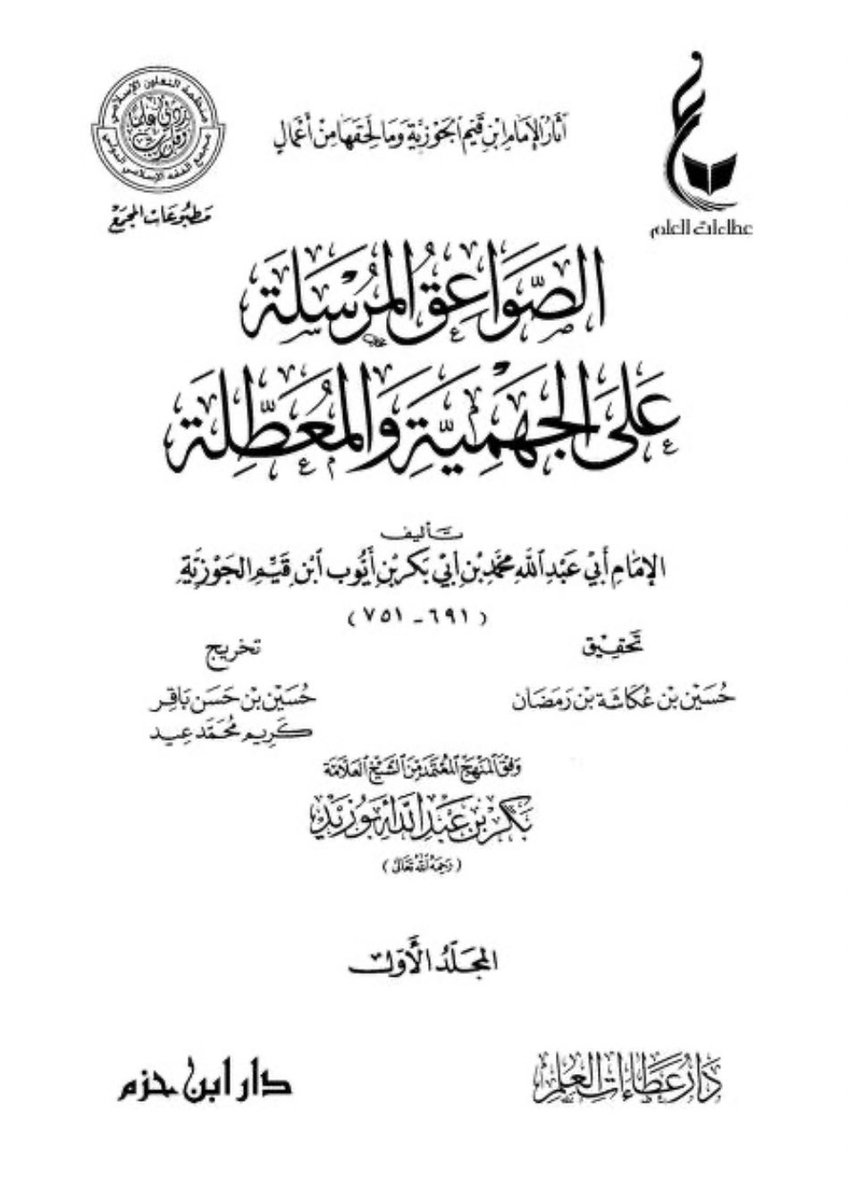
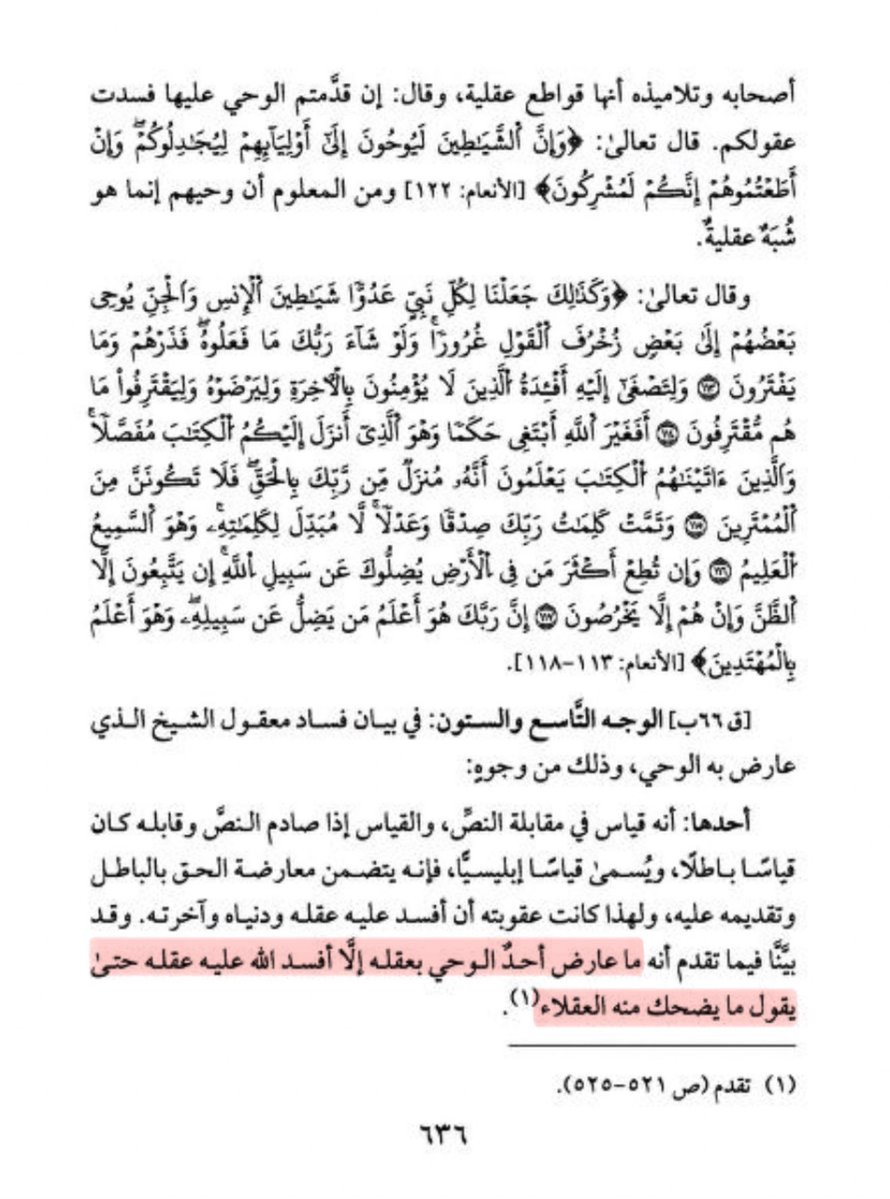
May Allah ﷻ be pleased with ‘Amr ibn al-‘Ās and the rest of the noble companions.
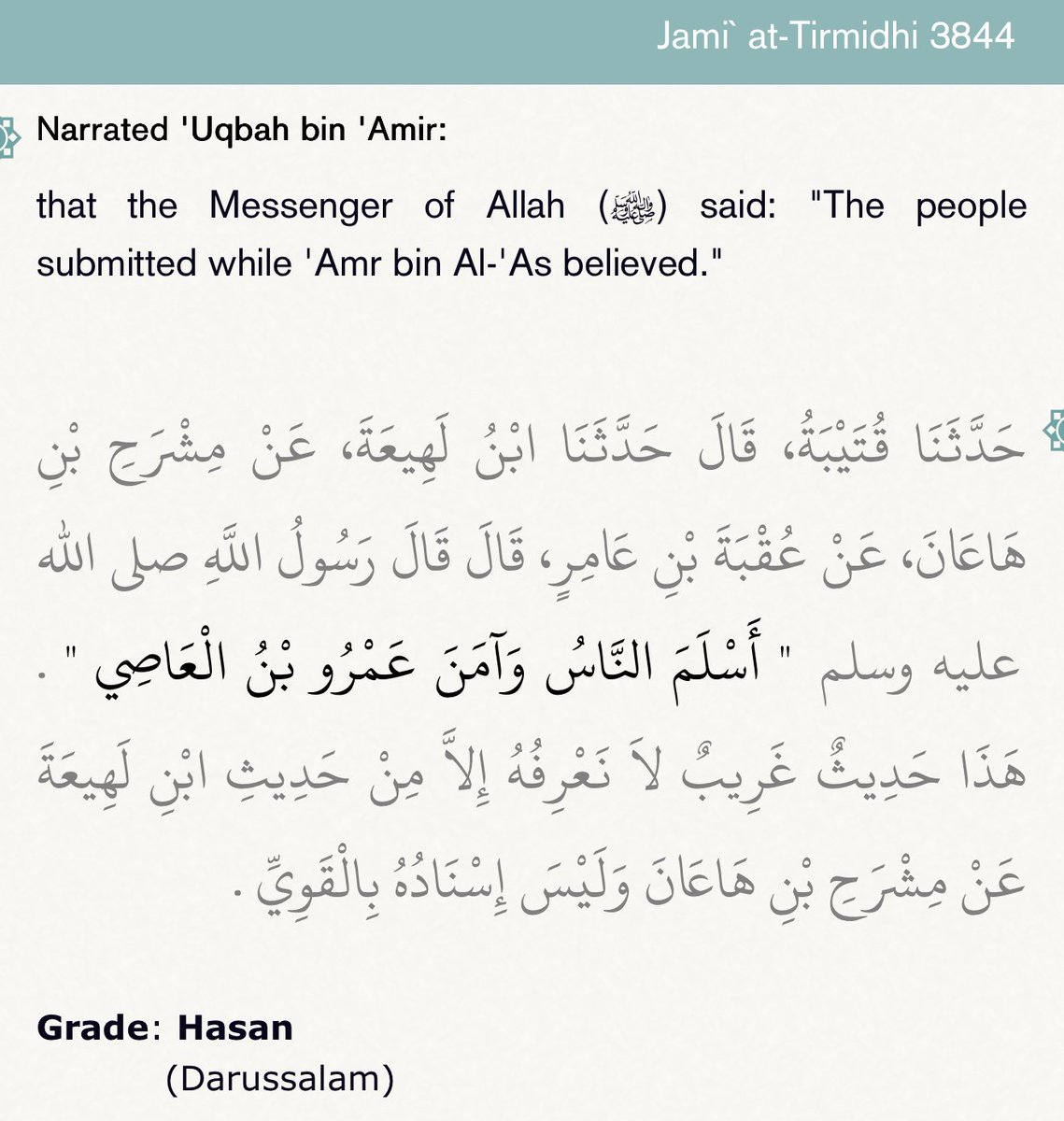
al-Imam Muhammad Ibn AbdulWahhab al-Ḥanbali said: “One must endure the hardships in the quest for seeking knowledge, for he (Moses when trying to seek knowledge from al-Khidr) said: {This journey of ours is very tiring}”
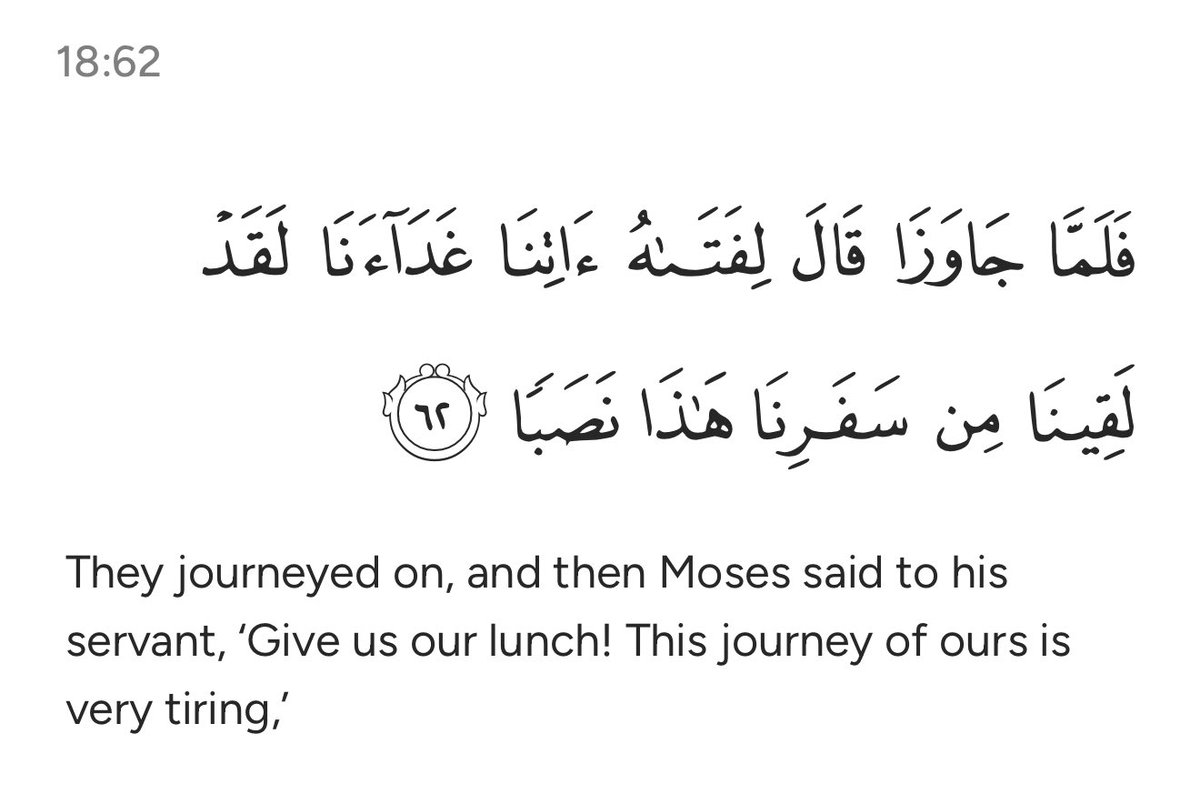
🧵 Did the Pious Predecessors do Tafwīḍ of the Meanings or Realities of the Attributes? | Abū ʿUbayd al-Qāsim Bin Sallām (157-224AH)
This doesn't indicate a negation of Makān, only a negation in the similarity of modality Also: • Notice how Imam Ḥammād bin Zayd (d. 179) affirmed a place for Allah ﷻ • Ibn Rajab expressed no displeasure, & said that “Makān” is found in the Sahīhayn x.com/raadtheshepher…
Technically ibn Rajab Al-Hanbali Negated Makān Ibn Rajab (رحمه الله) writes: “Ḥammād ibn Zayd was asked about it¹, and he replied: “He is in His makān (place), and He draws near to His creation as He wills. What he intended by this is that His descent is not a transition from…
In this post (and in the back and forth under it), brother Haroun is basically saying: “If you affirm that Allah is literally above the Throne, then the Tashbih in this diagram follows.” Then when someone says, “No, that’s not accurate”, he replies: “Then you’re just a Mufawwid…
This is the simplest way to put it. Keep this diagram in mind when reading Sh Ibn Taymia's works and everything will make sense.
The claim: “Ibn Taymiyyah transmitted the tafwīḍ from the Salaf...” The translation: “As for others from the children of Ādam understanding the meaning of these Attributes, no one can know it.” The reality: the word معنى (meaning) is no where to be found in the Arabic text 🤦🏻♂️
Ibn Taymiyyah transmitted the tafwīḍ from the Salaf, ʾIsḥāq Ibn Rāhawayh (161–238 AH), may Allāh have mercy on him, who said: “Ḥāfiẓ Al-ʾAsfahāni narrated in his book Al-Sunnah with a sound chain of narrators (isnād) from ʾImām ʾIsḥāq Ibn Rāhawayh: -
▪️Aristotle: The Prophet of Ashʿarism▪️ A brilliant video (In Arabic) by Shaykh Ḥusām al-Ḥamaydah al-Ḥanafī, in which he presents compelling examples from leading Ashʿarī theologians to demonstrate the extent to which they were shaped by Aristotle. youtu.be/kzk_VRr4Pkw?si…
“O Mufawwiḍah, if you claim to follow the Salaf, then tell us – how did you come to know Allāh through these texts if their meanings are hidden from you?”
A Brief Refutation of Tafwīd in Allāh’s Attributes | Shaykh ʿAbdullāh Al-Khulayfī youtube.com/watch?v=tGtlE5…
Abū Sulaymān al-Khaṭṭābī was upon the madhhab of taʾwīl of the ṣifāt initially and he repented from that and adhered to the madhhab of the Salaf, and his recantation from that is mentioned by Ibn Rajab al-Ḥanbalī in his Fatḥ al-Bārī. And al-Khaṭṭābī wrote a book called…
🧵 𝐀𝐛ū 𝐒𝐮𝐥𝐚𝐲𝐦ā𝐧 𝐚𝐥-𝐊𝐡𝐚ṭṭā𝐛ī (𝟑𝟏𝟗-𝟑𝟖𝟖𝐇): 𝐀𝐥𝐥ā𝐡 𝐈𝐬 𝐀𝐛𝐨𝐯𝐞 𝐓𝐡𝐞 𝐓𝐡𝐫𝐨𝐧𝐞 The saying of Abū Sulaymān al-Khaṭṭābī is quoted from Shiʾār al-Dīn through Ibn Taymīyyah’s Bayān Talbīs al-Jahmīyyah, Ibn al-Qayyim’s Mukhtaṣar al-Ṣawāʾiq…
‘Umar used to say: “Abu Bakr is our master, and he freed our master”— meaning Bilal. Sahih al-Bukhari 3754
There used to be four maqāmāt—one for each madhhab—and they would pray separately until King ʿAbd al-ʿAzīz (may Allah ﷻ have mercy on him) unified them under a single Imām. The Ḥanābilah used to pray first, followed by the Shāfiʿīs, then the Mālikīs, and finally the Ḥanafīs.

